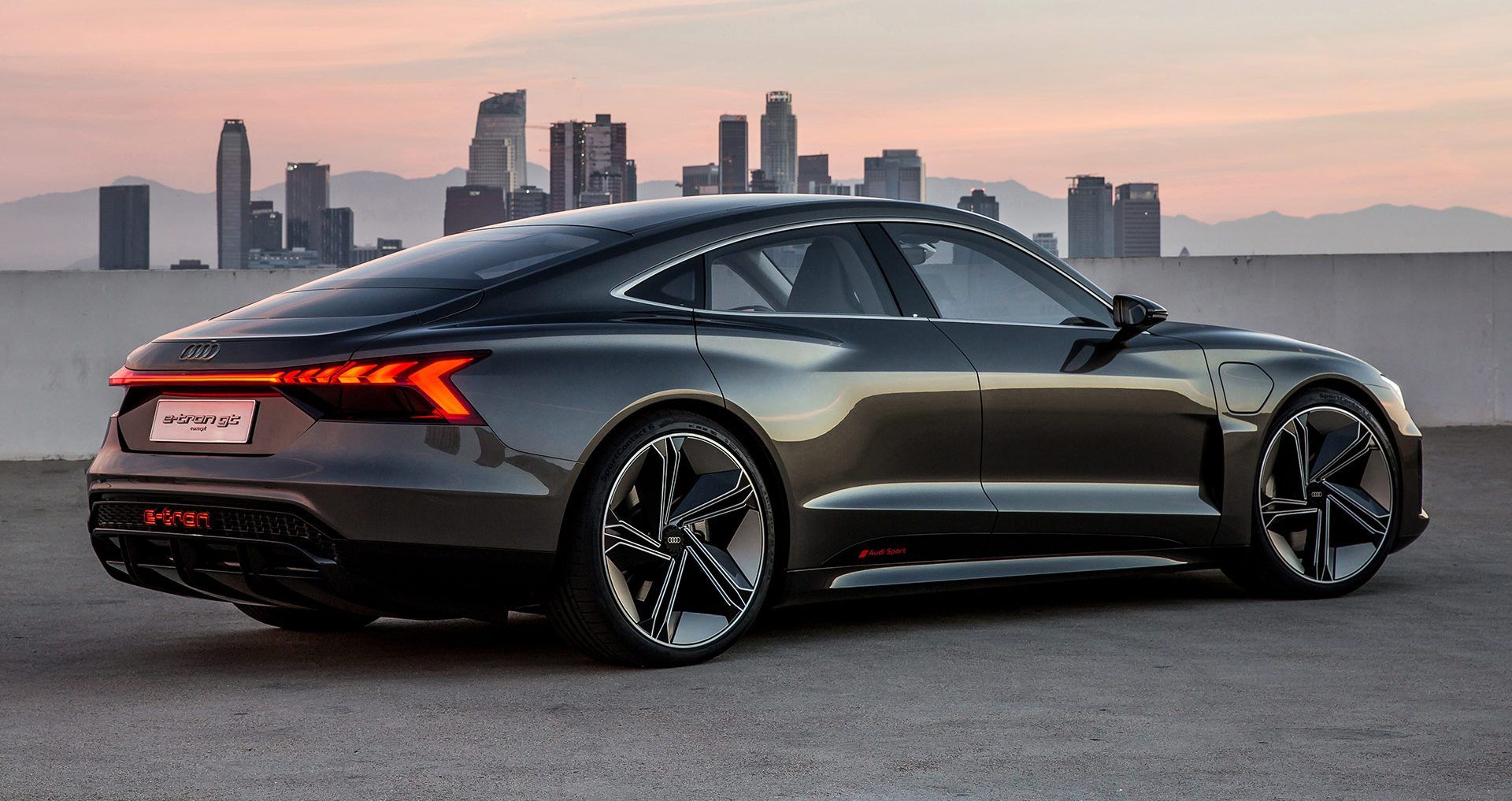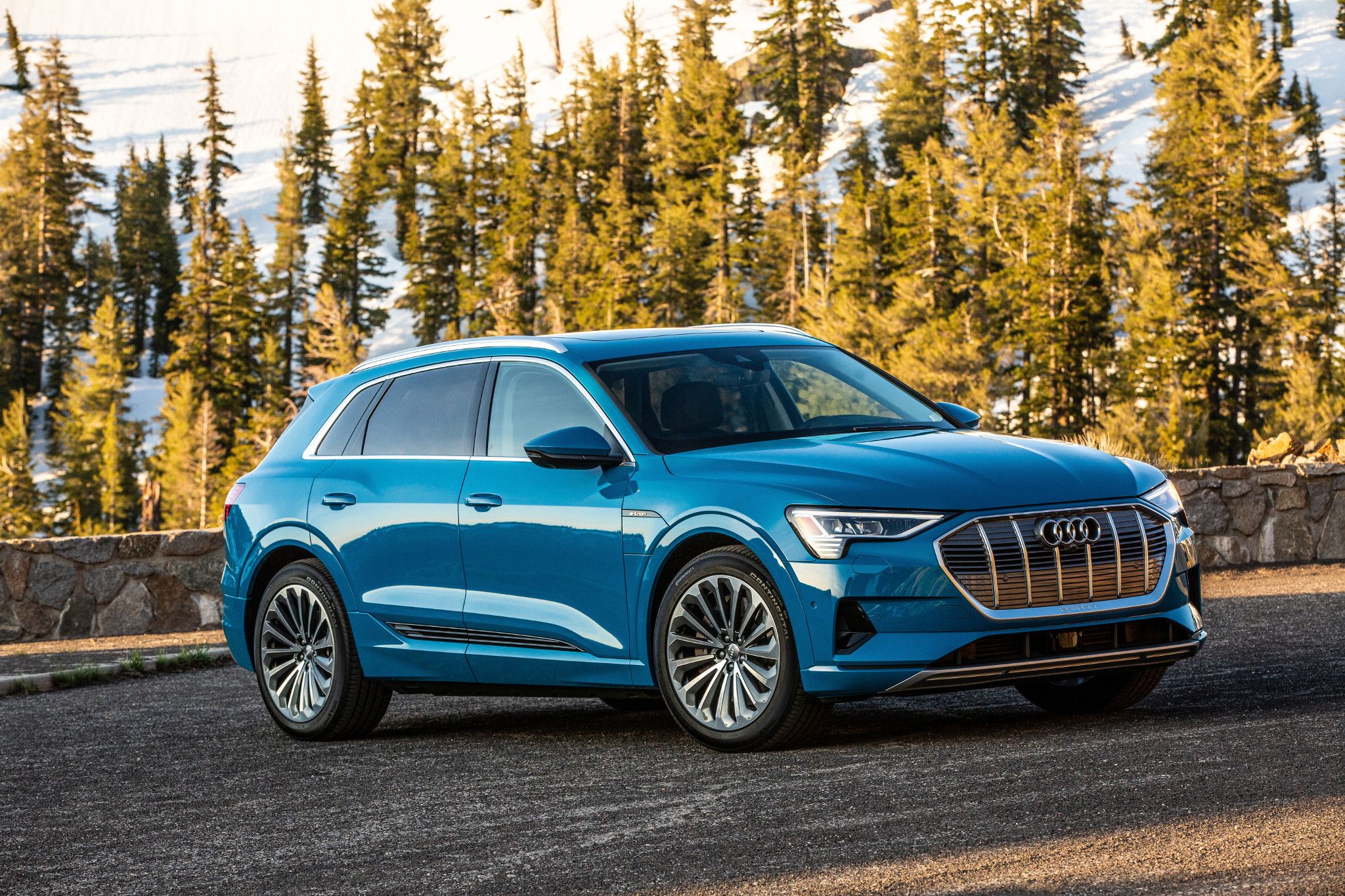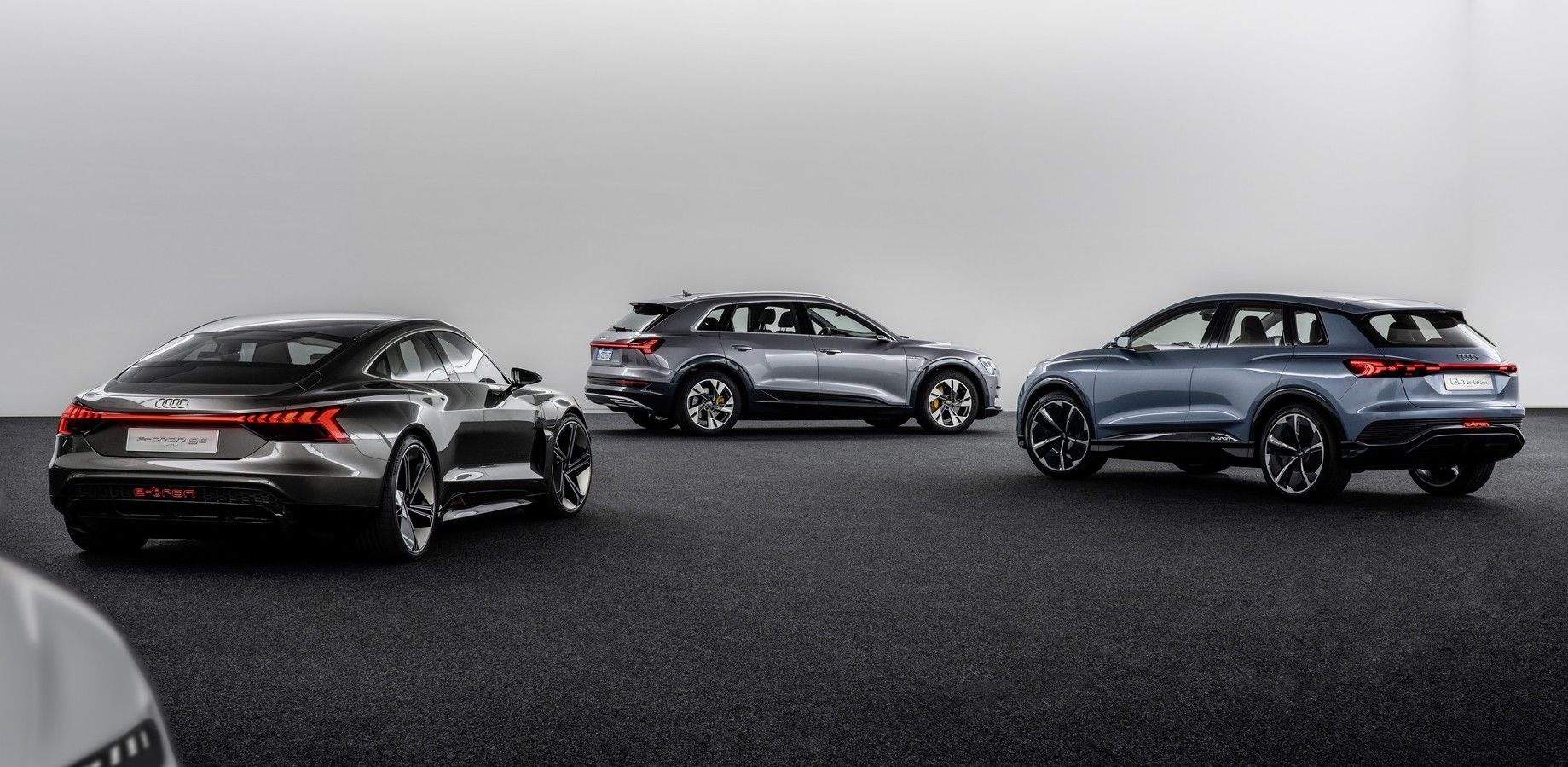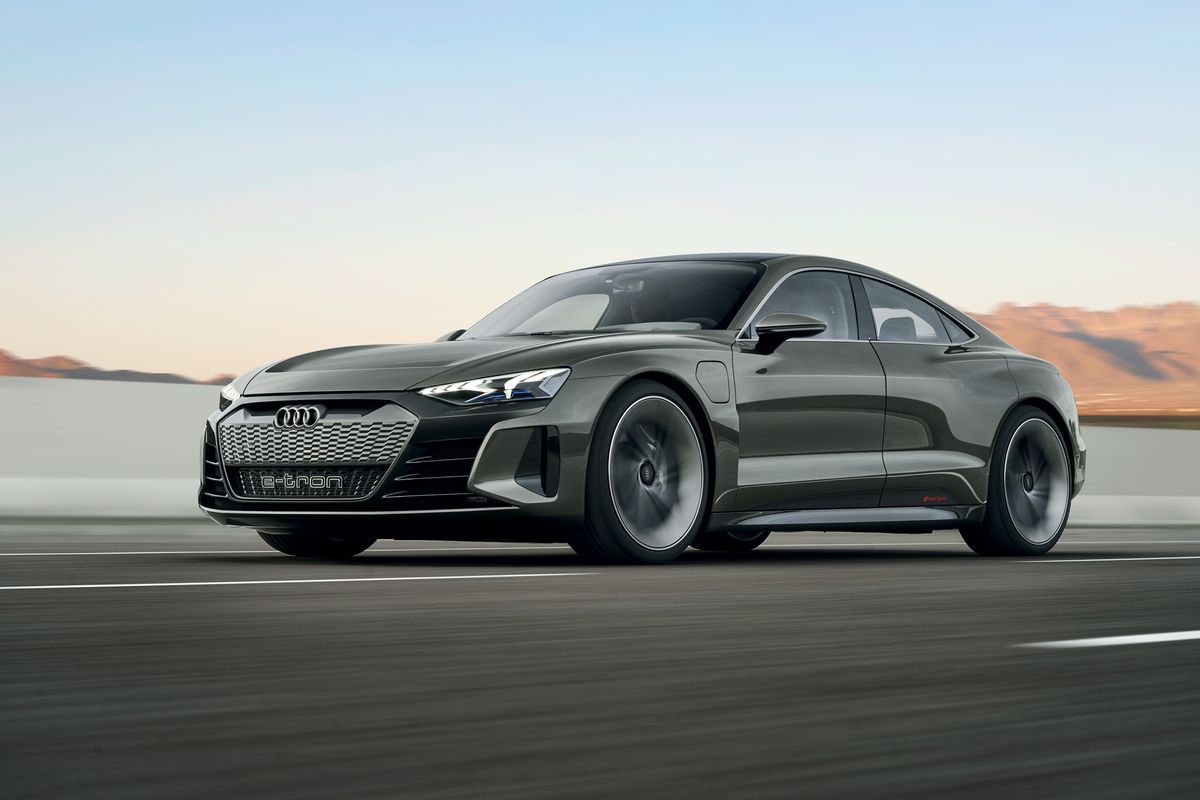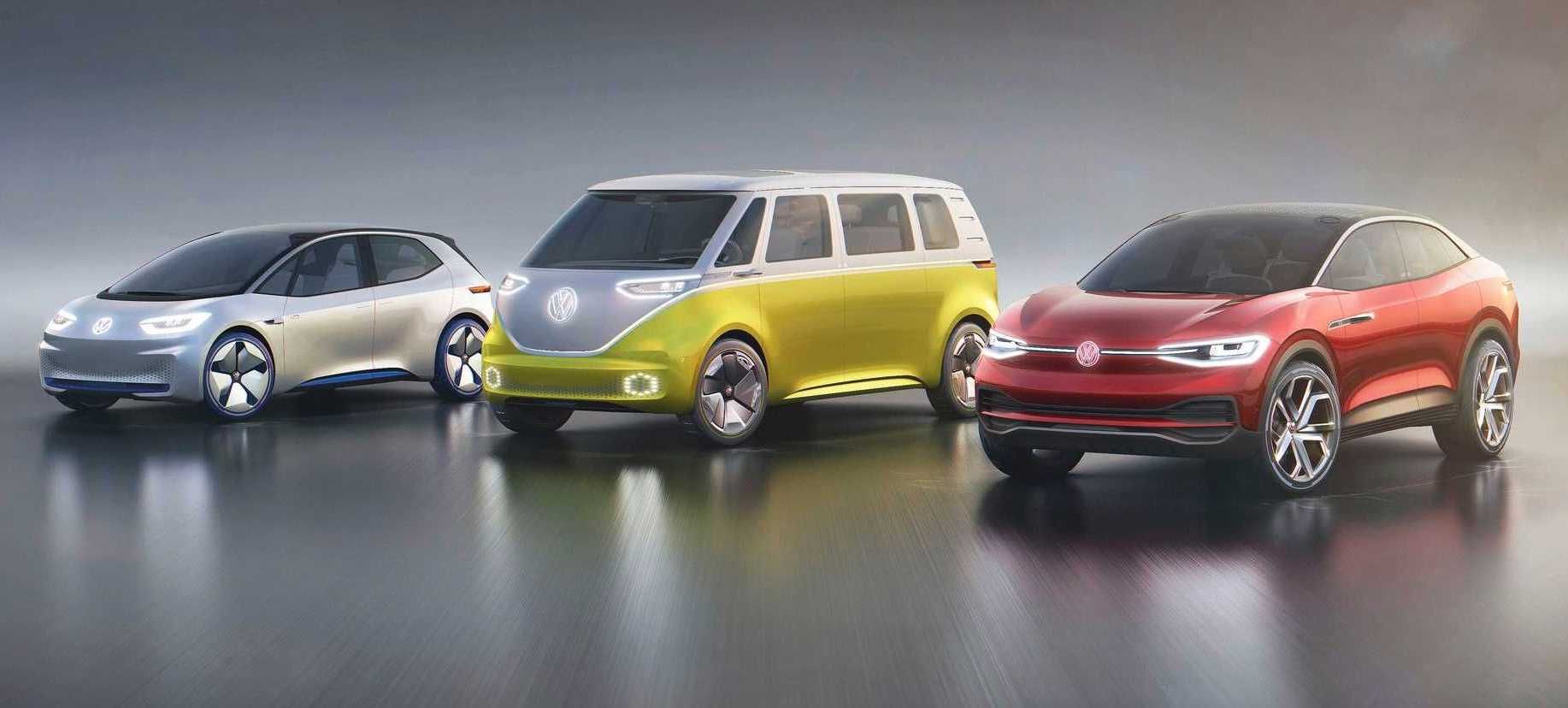Pop quiz: Who’s done more for the electric car, Elon Musk or Robert Anderson? If you answered Elon, you’re right. Even though Robert Anderson invented the electric car way back in 1832, he couldn't make it happen and zero-emission vehicles languished for more than 150 years. Tesla can take credit for finally bringing EVs to the (wealthy) people.
But now that Audi has an EV on the market, Tesla is going to start feeling the pressure like never before. The question has to be asked: can the German luxury/engineering powerhouse steal Tesla’s thunder and become the new electric standard-bearer?
4 The Early Adopter Phase
Audi makes some sublime cars: RS4, TT-RS, R8. They’re objects of desire for drivers around the world. But… they aren’t electric. Right now, the only electric Audis are crossovers that have been re-powered rather than engineered electric. And while Audi has more EVs on the way, we’re still in the early-adopter phase which means the cars have to be special or different enough to attract attention. The Q5 and almost identical-looking e-tron aren’t.
3 Audi Has An Amped EV Future
What Audi is missing in its EV lineup is exactly what the RS4, TT-RS, RS8 and Tesla in Ludicrous Mode deliver. Excitement. Blistering speed. Sex-appeal. If Audi could get some of that in zero emissions, it would go a long way toward getting buyers in the door. Halo cars sell dreams, and the e-tron ain’t one.
What the e-tron is, is a baby step. Like the similar-looking Q5 PHEV (hybrid), the e-tron is built on an existing platform repowered with electric motors and batteries. It was a best-we-could-do-quickly response to Tesla’s surprising success.
The long-term solution is three new, modular platforms: MEB, J1, and PPE. MEB is the mainstream platform. You’ll find it under Audi, Seat, Skoda and VW vehicles of any size from subcompact to 8-passenger SUV, using traditional (can we say that yet?) 400V electric technology. J1 will support the upcoming e-tron GT. The two major differences from MEB are 800V technology that provides more power, lower weight and faster charging, and a battery layout that creates hollow spaces to accommodate lower seating for racier designs and a lower center of gravity for better handling. Finally, PPE is the premium car platform. It also features 800V technology, but with a different battery layout intended for more upright vehicles.
2 The Audi-Porsche Connection
Here’s where it gets interesting. VW Group is the master of platform sharing, and that’s baked into Audi’s EV future. Both J1 and PPE are shared with Porsche, which bodes well for Audi’s sporting side. In fact, J1 is the same platform the Porsche Taycan uses, so based on what we already know about the Taycan, we can expect good things from the e-tron GT. Very good things. But let’s get real. While Audi has committed to electrifying one-third of their lineup by 2025, they only sell 1.8 million cars a year. So they’re not going to be the EV King.
1 If Anyone Will Topple Tesla, It’s VW
Think about it. VW is the second-largest car manufacturer in the world. As discussed above, they’ve mastered the art of platform sharing. And, after Dieselgate, they have something to prove when it comes to eco-friendly cars. All of that explains why VW is going electric in a big way. 22-million-EVs-in-the-next-10-years big.
Like Tesla, they’ve invested in battery technology and a manufacturing plant. But VW has 80+ years of experience to call on, making them more likely to hit their goals than the upstart start-up, who has to learn everything from scratch. Case-in-point: the new ID.3 electric car is 40% cheaper to produce than the eGolf – and why VW says they can deliver an EV for as little as $23,000. That’s Honda Accord money.
But in the end, VW’s ace-in-the-hole is a cult following even bigger than Tesla’s. And that's the real reason they’ll usurp the throne:
The EV King is dead. Long live the new EV King.

